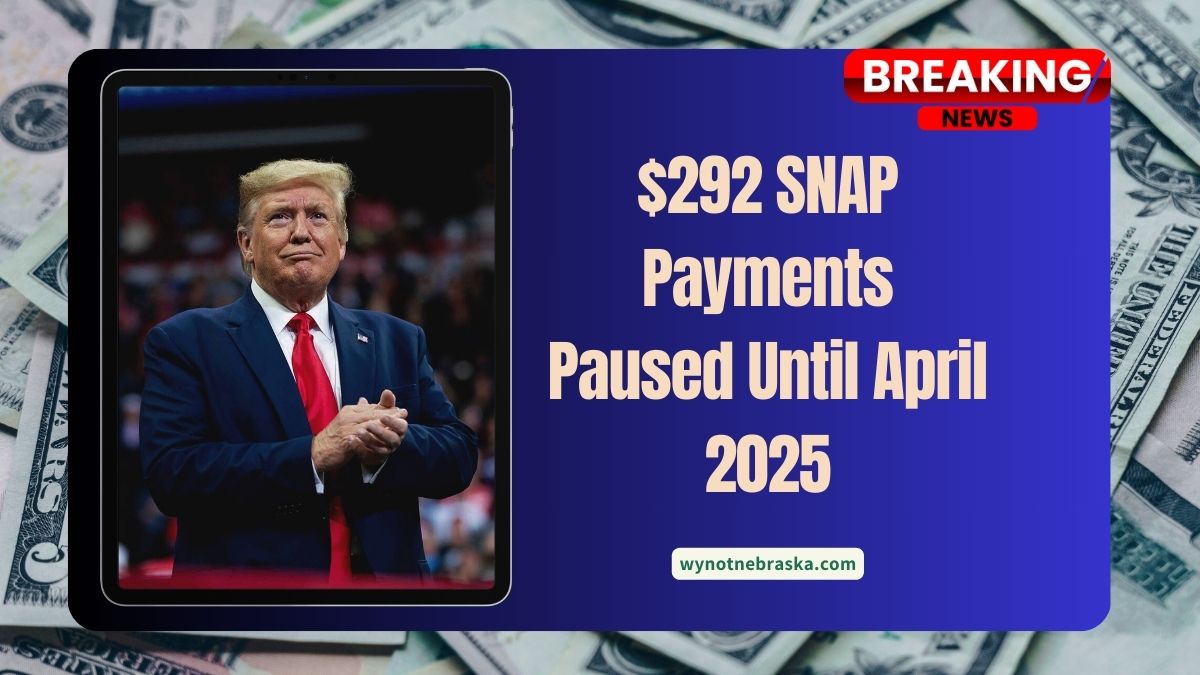The federal Supplemental Nutrition Assistance Program (SNAP), a vital support for millions of Americans, is undergoing a significant change.
As of April 2025, $292 monthly emergency allotments will be paused in several states, marking the end of pandemic-related food assistance expansions.
For seniors, families, and low-income individuals, understanding these updates is crucial for adjusting financial and food budgets.
Let’s break down which states are impacted, what it means for recipients, and how to manage this transition.
SNAP $292 Payments Pause Explained
| Category | Details |
|---|---|
| Payment Affected | $292 monthly emergency allotment |
| Reason for Change | End of COVID-19 Emergency Allotments |
| Pause Start Date | April 2025 |
| States Affected | 30+ states (see full list below) |
| Average Reduction | $95 to $250+ per household |
The halt of these payments means many families will revert to pre-pandemic SNAP benefit amounts, based on standard eligibility rules.
States Where SNAP Benefits Are Being Paused
The following states will see SNAP emergency payments discontinued starting in April 2025:
| State | State | State |
|---|---|---|
| Alabama | Maine | Ohio |
| California | Maryland | Oklahoma |
| Colorado | Massachusetts | Oregon |
| Connecticut | Michigan | Pennsylvania |
| Delaware | Minnesota | Rhode Island |
| District of Columbia | Nevada | Texas |
| Hawaii | New Hampshire | Utah |
| Illinois | New Jersey | Vermont |
| Kansas | New Mexico | Virginia |
| Louisiana | New York | Washington |
| West Virginia | Wisconsin | North Carolina |
Residents in these states must prepare for lower monthly SNAP deposits beginning next month.
Impact on Beneficiaries
The reduction of $292 SNAP payments will bring several challenges:
- Minimum Reduction:
Households will lose at least $95 monthly. - Higher Losses for Large Families:
Larger families could lose $250 or more each month. - Increased Food Insecurity:
Families may struggle to meet their dietary needs as food costs remain high. - Greater Demand for Community Assistance:
Food banks, churches, and local organizations are expected to see increased demand.
Coping Strategies for Reduced SNAP Benefits
1. Update Household Information
Ensure all income, expenses, and household changes are correctly reported to your SNAP agency.
You may qualify for a higher standard benefit if your circumstances have changed.
2. Apply for Additional Support Programs
Consider enrolling in complementary assistance programs such as:
- WIC (Women, Infants, and Children Program)
- National School Lunch Program (NSLP)
- Temporary Assistance for Needy Families (TANF)
These programs can help bridge the gap left by lower SNAP benefits.
3. Utilize Food Banks and Community Resources
Organizations like Feeding America and local food pantries provide essential groceries and meals for free or at reduced prices.
4. Dial 211 for Local Help
Calling 211 connects you to housing assistance, utility bill relief, healthcare programs, and employment resources in your area.
The pause of $292 SNAP payments beginning in April 2025 signals a major shift for low-income families relying on food assistance.
Although the rollback creates immediate challenges, updating your eligibility, exploring additional programs, and using community resources can help ease the transition.
Staying informed, planning ahead, and seeking local support services will be crucial to maintaining food security through this change.
Continue monitoring updates from state agencies and advocacy groups to ensure you access all available help.
FAQs
Why are SNAP emergency allotments ending in April 2025?
The federal government ended pandemic emergency declarations, transitioning SNAP benefits back to pre-COVID-19 calculation methods.
How much will my SNAP benefits decrease?
Most households will lose at least $95 per month, but reductions could be higher depending on household size and income.
Can I appeal if my SNAP benefits are too low after the change?
Yes, you can request a reconsideration by contacting your state’s SNAP office and providing updated income or expense information.
